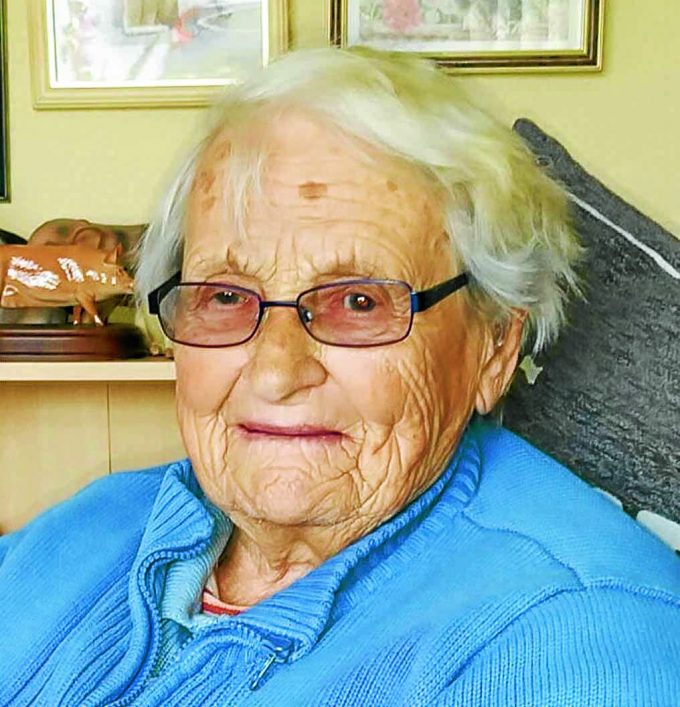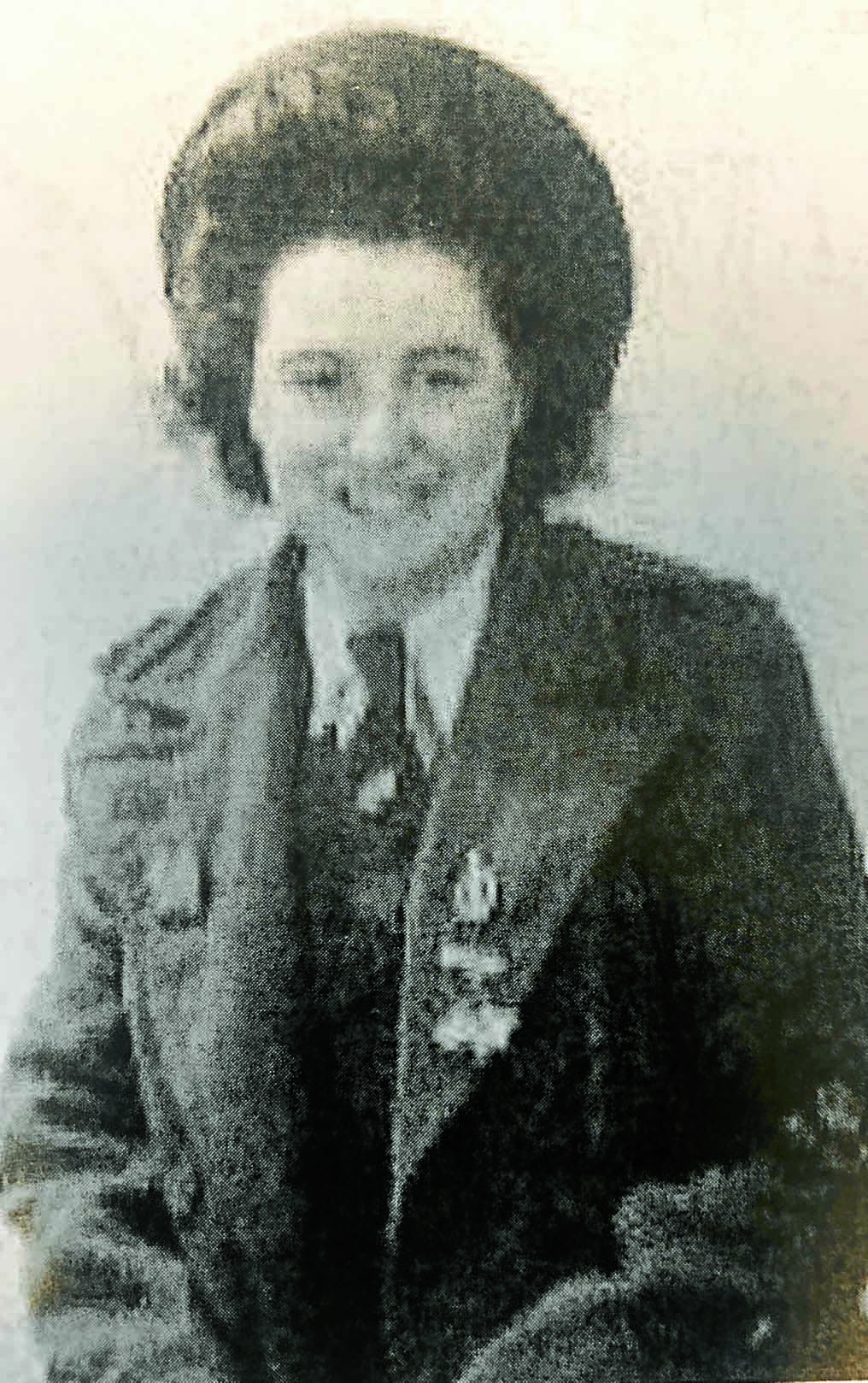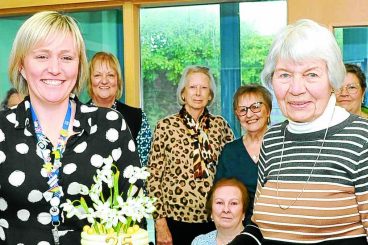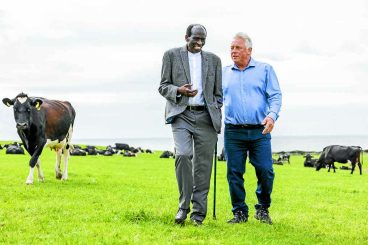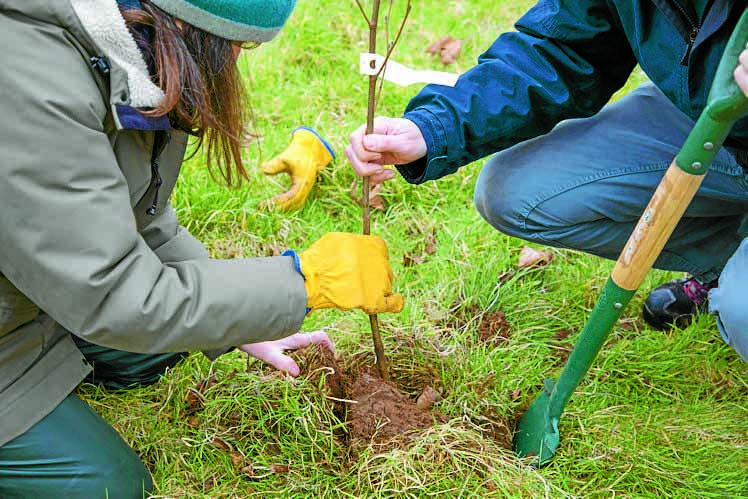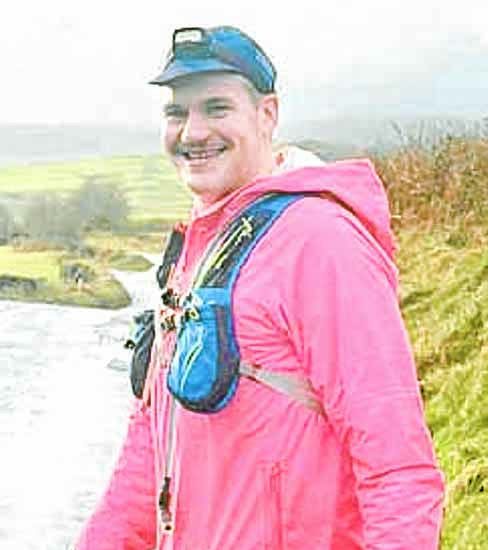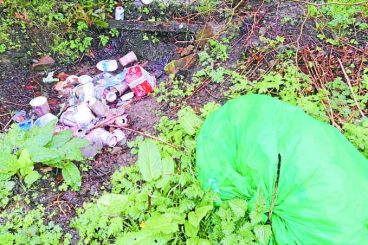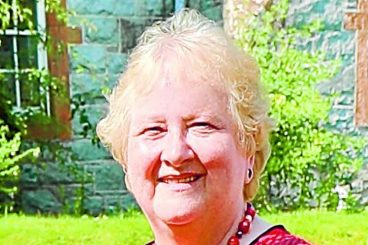The undoubted bravery shown by soldiers overseas can be a source of inspiration in these times of hardship and uncertainty. Some will even go as far as drawing parallels between wartime and the pandemic – but those who have lived through both will tell you just how disparate the two scenarios are.
And Cummertrees resident Christina Irving, better known as Chrissie, remembers the outbreak of World War II well. Like many young women, she left school to join the Land Army, standing in for agricultural workers who were required for national service.
Being only 13 years old – three years shy of the minimum age accepted by the Land Army at the time – she had to tell a white lie when applying, but explained that “they never asked any questions in them days.”
Having grown up on a farm that her father managed in Waterbeck, when assigned her first job in Canonbie the working environment she found herself in was already somewhat familiar, however the workload was not. Chrissie recalls the long days working alongside the farmer as the only land girl, milking 35 cows between them by hand twice a day, as well as plenty of lambing, ploughing and odd chores.
Reflecting on the particularly trying summer days, Chrissie said: “They were long days and you hardly ever got a day off. We used to work out tae midnight in them days and then we were up at half past four again in the morning to milk.
“But, oh, it was hard work. They did’nae ken it’s work nowadays.”
As well as the early rises and long days, hardship was added to by the lack of hot water, no bath, a diet of cold rice pudding sandwiches and a night’s sleep on what she describes as a “bed o’ thistles.”
Over her ten years in the Land Army, she spent time at two farms in Canonbie and one in Ecclefechan, and despite there being an estimated 80,000 Land Girls across the UK by 1943, Chrissie recalls only ever meeting one other worker carrying out the role.
Like was the case for all Land Girls, time off work was very limited and in her one weekend off a month, Chrissie enjoyed going to the dances at Langholm, cycling six miles each way with a strict 10 pm curfew when doors were locked back at the farm. In one instance, she failed to make it back in time and resorted to sleeping in the hay shed.
In spite of the harsh circumstances, long hours and limited contact with other young people, Chrissie said that if she had to do it all again, she would – and whilst conditions nowadays make for more comfortable living, she says she has better memories of the war than she does of the pandemic.
In later life, the 92 year-old has been actively campaigning to have the efforts of Land Girls during both world wars recognised, and in 2008 her efforts were matched as an official medal was issued to women who had worked in the Land Army and Timber Corps.
